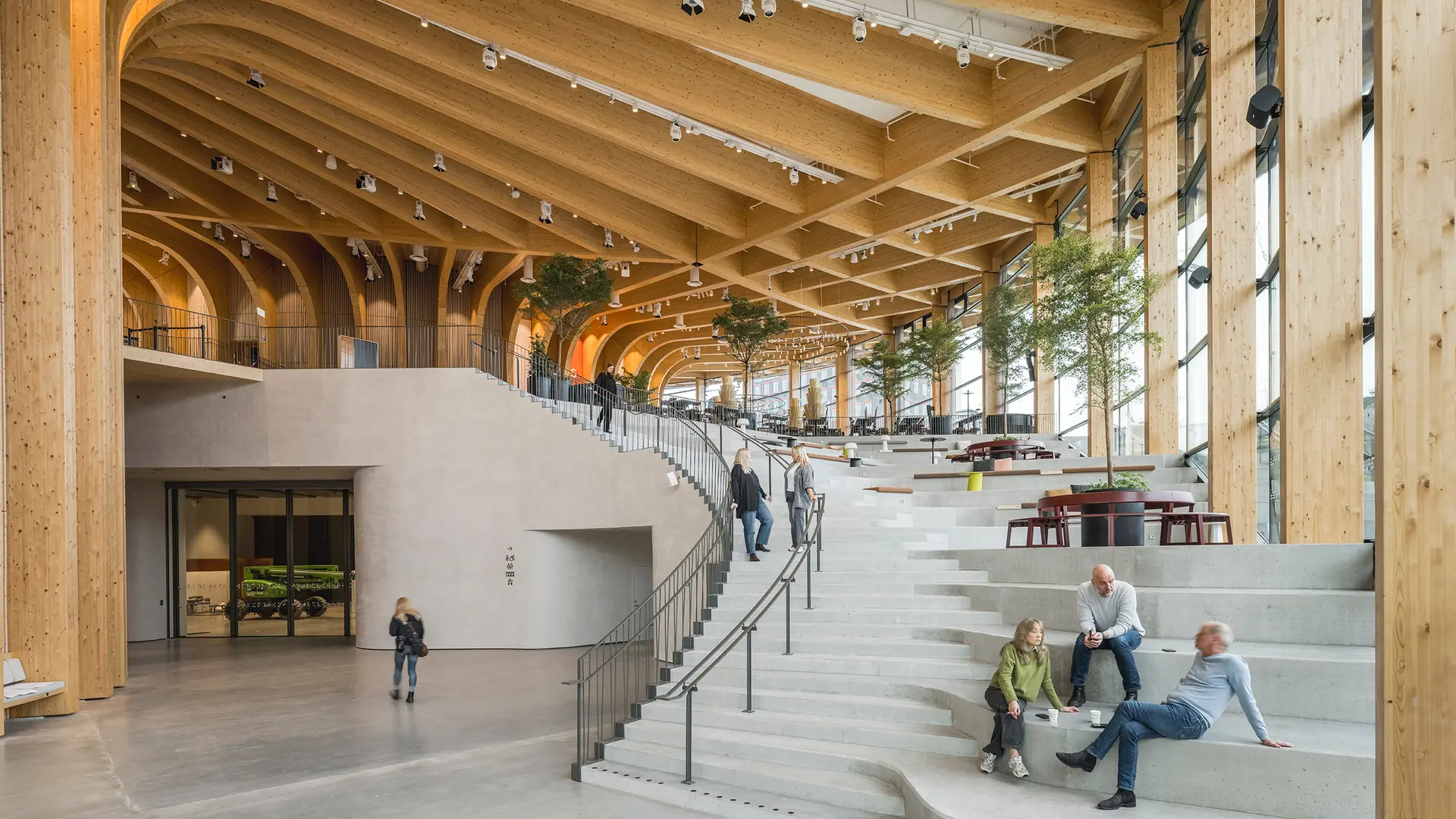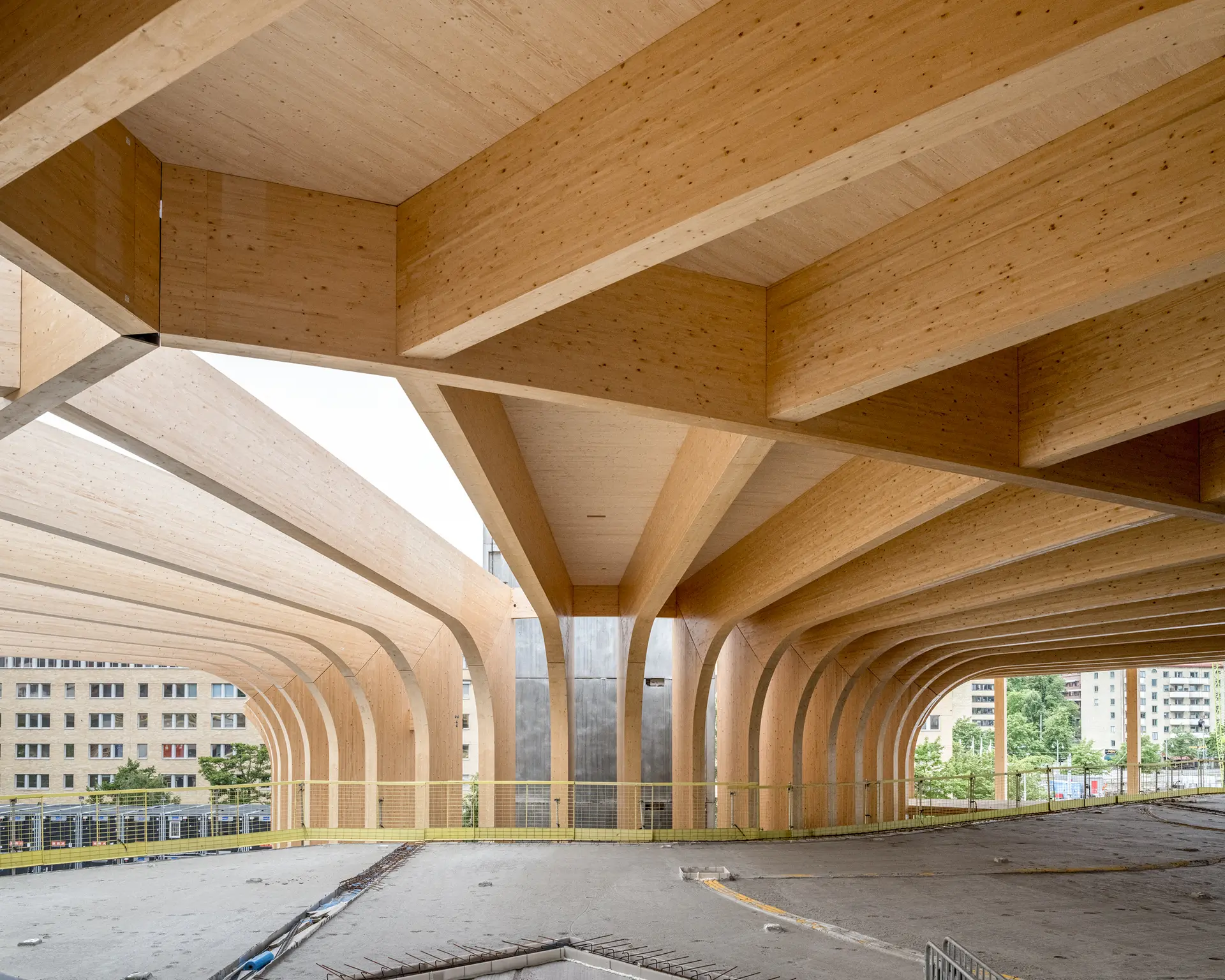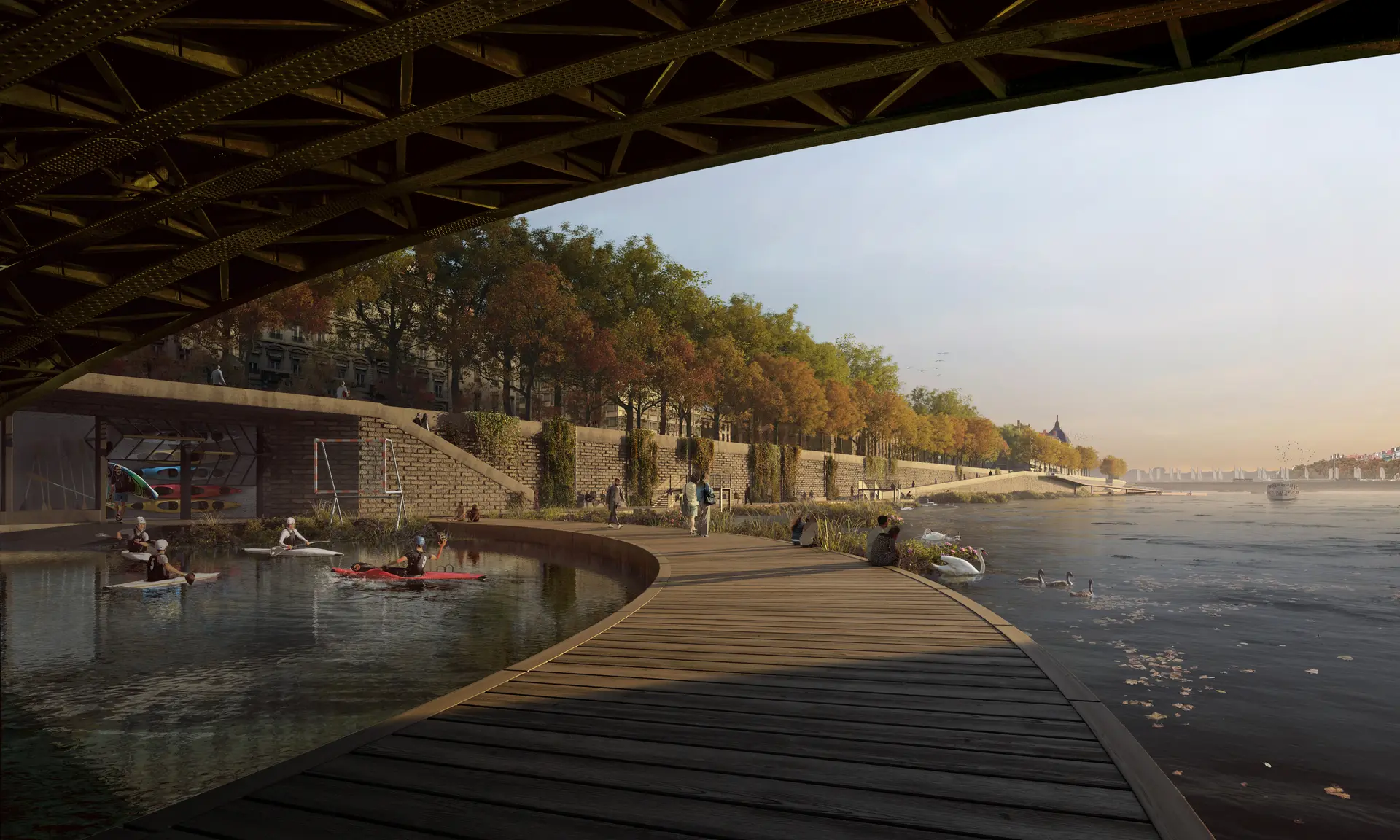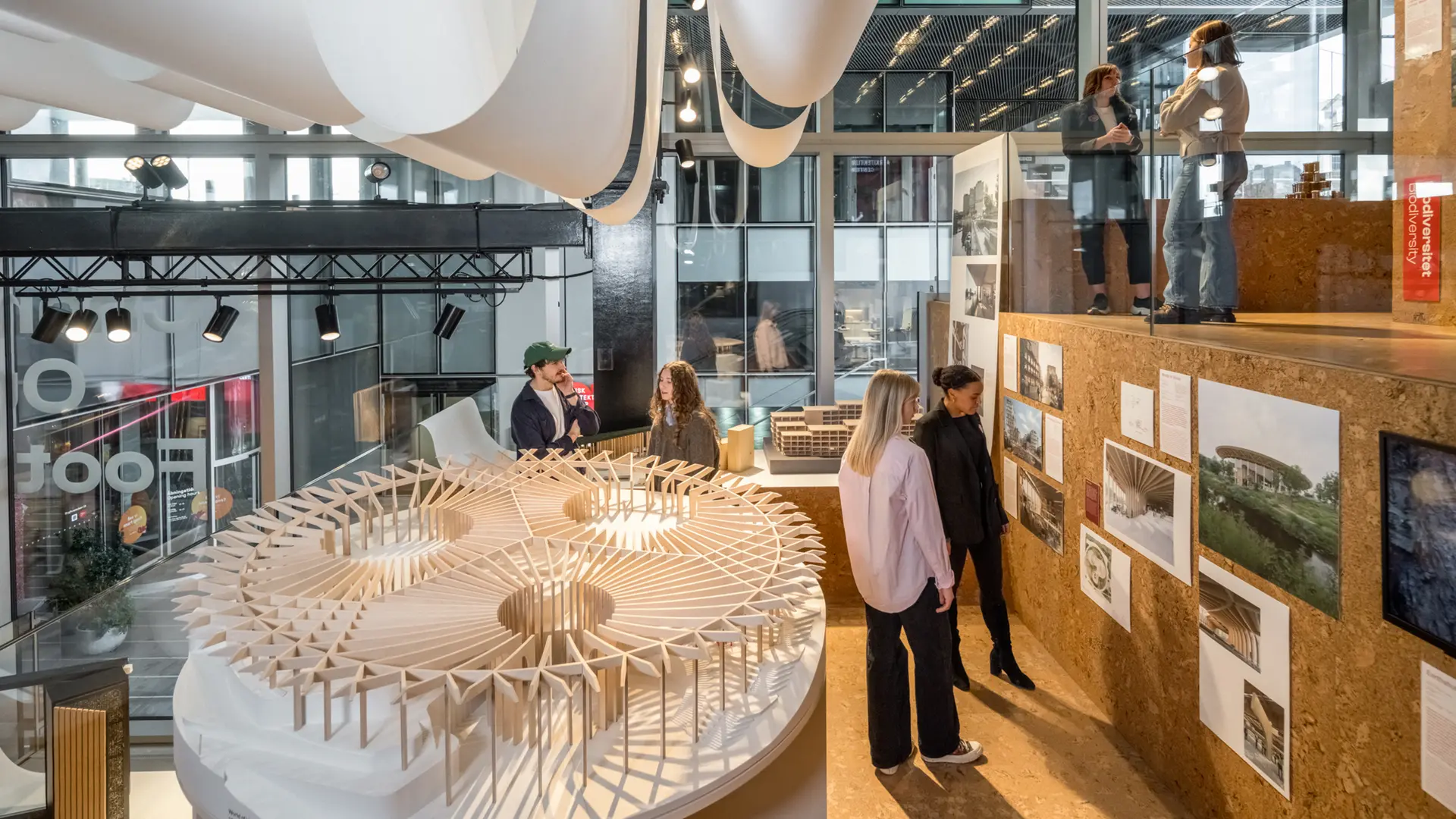Straw walled school makes architecture out of agriculture
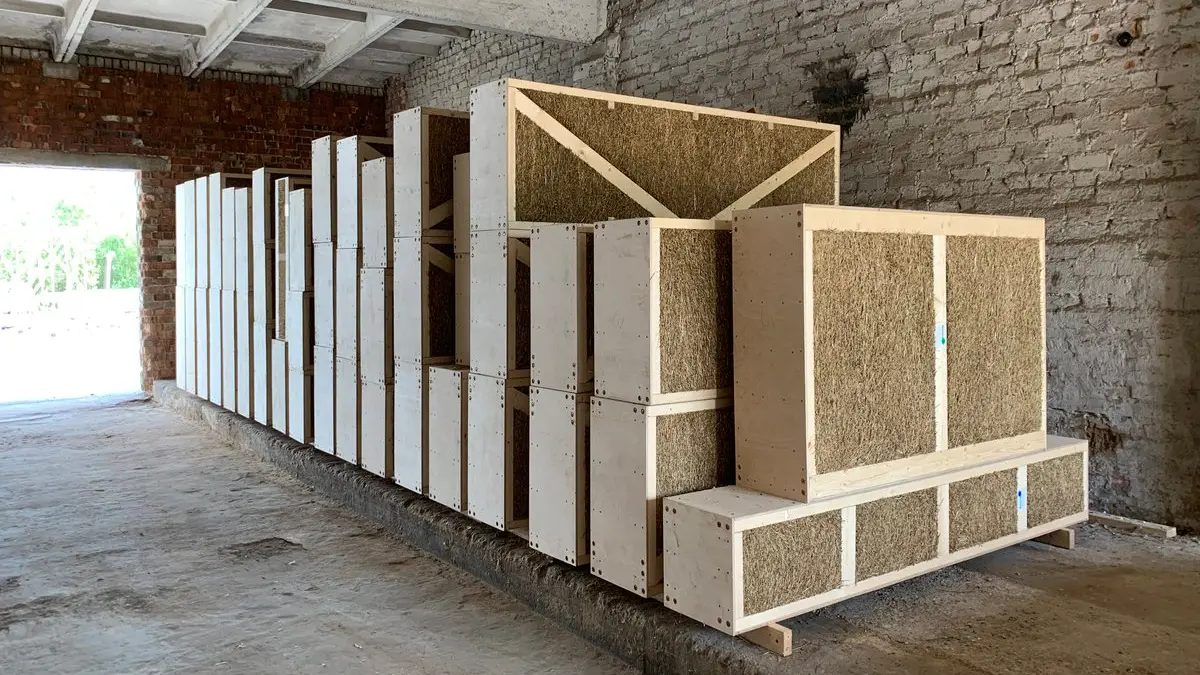
At the Feldballe School in eastern Jutland, Denmark, we are designing a 250 m2 extension using only natural materials.
The Feldballe School, a local primary and secondary school, sought to build an extension that delivered the school's requirements for functionality, ambiance and architectural expression – while at the same time being carbon negative, meaning it captures more CO2 than it emits.
To strike this ambitious balance, we looked to straw – most often used in rustic construction and agriculture – as the key to carbon-capturing construction.
The outer walls of the school’s new extension are made up of straw elements from EcoCocon, a manufacturer of straw bale panels. The elements are made of compressed straw in wooden cassettes. Additionally, the building’s roof structure is composed entirely of timber.
“Straw is fast-growing biomass, an agricultural byproduct that stores CO2. It’s a goldmine as a sustainable building resource,” Senior Constructing Architect, Peter Tegner Matz, says.
“We have worked with an uncompromising material strategy where we wanted to make a significant energy reduction, a healthy indoor climate and reduce CO2. Growing materials like this create a renewable resource that captures and stores CO2. Therefore, it was a natural choice for this project,” he says.
While straw has been scientifically proven to reduce the energy usage of a residential house with up to 90%, another major advantage of straw is that it can be produced across the globe. This makes the use of straw as a building material easy to upscale. It also has some obvious benefits to the indoor climate, as it does not off-gas, Lars Keller, co-owner and distributor of EcoCocon, says.
“We are upcycling a waste product from the agricultural sector to a construction product. Instead of producing new materials, we’re taking a product that is already out in the fields and that we, in addition, would like to avoid burning off, and gives it a new purpose,” he adds.
So far, five buildings have been built in Denmark with EcoCocon's straw elements. Several more are on the way, including the Feldballe School extension.
